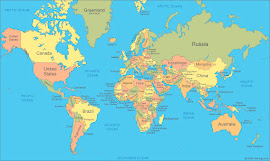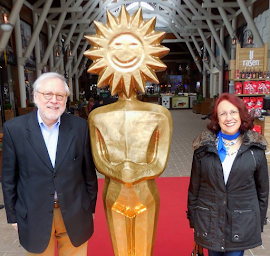Biographies of Great Economists
As compiled by:
Ross Emmett (Arizona State University)
and with few new additions from:
Mauro Boianovsky (Eco-UnB),
Stefan Kolev (Wilhelm Röpke Institute Erfur),
Daniele Besomi (Université de Lausanne)
Assembly by:
Paulo Roberto de Almeida (Uniceub, Brazil)
Adelman, Jeremy. 2013. Worldly Philosopher: The Odyssey of Albert O. Hirschman. Princeton: Princeton University Press.
Allen, R. 1993. Irving Fisher: A Biography. Cambridge and Oxford: Blackwell.
Allen, Robert Loring. 1991. Opening Doors: The Life and Work of Joseph Schumpeter: Vol. 1: Europe; Vol. 2: America. Transaction.
Andersen, E. S. 2011. Joseph A. Schumpeter. New York: Palgrave Macmillan
Aslanbeigui, Nahid, and Guy Oakes. 2009. The Provocative Joan Robinson: The Making of a Cambridge Economist. Durham, NC: Duke University Press.
Aslanbeigui, Nahid, and Guy Oakes. 2015. Arthur Cecil Pigou. New York: Palgrave Macmillan.
Assous, Michael, and Julio G. Lopez. 2010. Michal Kalecki: An Intellectual Biography. New York: Palgrave Macmillan.
Backhouse, Roger E. 2017. Founder of Modern Economics: Paul A. Samuelson, vol. I: Becoming Samuelson, 1915-1948. Oxford: Oxford University Press. \
Baranzini, Mauro, and Amalia Mirante. 2018. Luigi L. Pasinetti: An Intellectual Biography. London: Palgrave Macmillan.
Barbe, Lluis. 2010. Francis Ysidro Edgeworth: A Portrait with Family and Friends. Cheltenham: Edward Elgar.
Barber, W. 2008. Gunnar Myrdal: An Intellectual Biography. New York: Palgrave Macmillan.
Barker, Charles Albro. 1991 (1955). Henry George. New York: Robert Schalkenbach Foundation.
Blaug, Mark. 1990. John Maynard Keynes: life, ideas, legacy. New York: St. Martin's Press.
Boettke, P. J. 2018. F. A. Hayek. New York: Palgrave Macmillan.
Bollard, Alan. 2016. A Few Hares to Chase: The Economic Life and Times of Bill Phillips. New York: Oxford University Press.
Brazelton, W. 2001. Designing US Economic Policy: An Analytical Biography of Leon H. Keyserling. New York: Palgrave Macmillan.
Buchan, James. 2006. The Authentic Adam Smith: His Life and Ideas. New York: W.W. Norton.
Caldentey, Esteban Pérez. 2019. Roy Harrod. London: Palgrave Macmillan.
Caldwell, Bruce. 2003. Hayek’s Challenge: An Intellectual Biography of F. A. Hayek. Chicago: University of Chicago Press.
Capaldi, Nicholas. 2004. John Stuart Mill: A Biography. Cambridge: Cambridge University Press.
Chandra, R. 2020. Allyn Abbott Young. New York: Palgrave Macmillan.
Cicarelli, James; Julianne Cicarelli. 1996. Joan Robinson : a bio-bibliography Westport, Conn.; London: Greenwood Press.
Boulat, R. (2008). Jean Fourastié : un expert en productivité. Besançon: Presses universitaires de Franche-Comté.
Chasse, John Dennis. 2017. A Worker’s Economist: John R. Commons and His Legacy from Progressivism to the War on Poverty. New York: Routledge.
Chivvis, Christopher S. 2010. The Monetary Conservative: Jacques Rueff and Twentieth-century Free Market Thought. DeKalb, IL: Northern Illinois University Press.
Cowan, D. 2016. Frank H. Knight. New York: Palgrave Macmillan.
Davidson, Paul. 2007. John Maynard Keynes. New York: Palgrave Macmillan.
Dawidoff, Nicholas. 2002. The Fly Swatter: How My Grandfather Made His Way in the World (the more recent paperback subtitle is Portrait of an Exceptional Character). New York: Pantheon.
Diggens, John Patrick. 1999. Thorstein Veblen: Theorist of the Leisure Class. Princeton: Princeton University Press. [originally published as The Bard of Savagery]
Dimand, Robert W. 2015. James Tobin. New York: Palgrave Macmillan.
Dimand, Robert W. 2019. Irving Fisher. New York: Palgrave Macmillan.
Dimand, Robert W., Dimand, Mary Ann, and Forget, Evelyn L. 2000. A Biographical Dictionary of Women Economists. Cheltenham: Edward Elgar.
Dosman, E. 2008. The life and times of Raul Prebisch, 1901-1986. McGill-Queens University Press.
Earl, P. and B. Littleboy. 2014. G. L. S. Shackle. New York: Palgrave Macmillan.
Ebenstrein, Lanny. 2001. Friedrich Hayek: A Biography. St Martin’s Press.
Ebenstein, Lanny. 2007. Milton Friedman: A Biography. New York: Palgrave Macmillan.
Fasting, Mathilde C. Torkel Aschehoug and Norwegian Economic Thought: Reconsidering a Forgotten Norwegian Pioneer Economist. London: Anthem Press.
Feiwel, George R. 1976. The Intellectual Capital of Michal Kalecki: A Study in Economic Theory and Policy. Knoxville: The University of Tennessee.
Fletcher, Gordon. 2008. Dennis Robertson. New York: Palgrave Macmillan.
Ford, J. L. 1994. G.L.S. Shackle: The Dissenting Economist’s Economist. Cheltenham: Edward Elgar.
Forder, J. 2019. Milton Friedman. New York: Palgrave Macmillan.
Gabriel, Mary. 2012. Love and Capital: Karl and Jenny Marx and the Birth of a Revolution. New York: Back Bay Books.
Garlund, Torsten. 1996. The Life of Knut Wicksell. Translated by Nancy Adler. Cheltenham, UK: Edward Elgar.
Goodwin, Crauford D. 2014. Walter Lippmann: Public Economist. Cambridge: Harvard University Press.
Groenewegen, P. 1995. A Soaring Eagle: Alfred Marshall, 1842-1924. Cheltenham, UK: Edward Elgar.
Groenewegen, P. 2007. Alfred Marshall. New York: Palgrave Macmillan.
Hamouda, O. F. 1993. John R. Hicks: The Economist’s Economist. Oxford: Oxford University Press.
Harcourt, G. and P. Kerr. 2009. Joan Robinson. New York: Palgrave Macmillan.
Harris, Jose. 1977. William Beveridge: A Biography. Oxford: Oxford University Press.
Harrod, Roy. 1951. The Life of John Maynard Keynes. Toronto: George J. McLeod.
Hayek, F. A. 2015. Hayek on Mill: The Mill-Taylor Friendship and Related Writings, edited by Sandra J. Peart. Chicago: University of Chicago Press.
Heaton, Herbert. 1952. A Scholar in Action: Edwin F. Gay. Cambridge: Harvard University Press.
Hecht, Jacqueline. 1958. La vie de François Quesnay. In François Quesnay et la physiocratie, Paris, INED, t. I, pp. 211-294. [In French]
Henderson, W. O. 1983. Friedrich List: Economist and Visionary, 1789-1846. London: Routledge.
Hennecke, Hans Jörg. 2000. Friedrich August von Hayek. Wirtschaft und Finanzen. [in German]
Hennecke, Hans Jörg. 2006. Wilhelm Röpke: Ein Leben in der Brandung. Stuttgart: Schäffer-Poeschel Verlag. [in German]
Hession, Charles H. 1984. John Maynard Keynes: a personal biography of the man who revolutionized capitalism and the way we live. New York: Macmillan.
Hill, Malcolm. 1999. Statesman of the Enlightenment: The Life of Anne-Robert Turgot. London: Othila Press.
Hirst, Margaret E. 1909. Life of Friedrich List and Selections from His Writings. London: Smith, Elder and Co.
Howson, Susan. 2007. Lionel Robbins. Cambridge: Cambridge University Press.
Hülsmann, Jörg Guido. 2007. Mises: The Last Knight of Liberalism. Auburn: Ludwig von Mises Institute.
Ingham, B. and Mosley, P. 2013. Sir Arthur Lewis: a biography. Palgrave Macmillan.
Jacobsson, Erin. 1979. A Life for Sound Money: Per Jacobsson, A Biography. Oxford: Oxford University Press.
Kennedy, Gavin. 2008. Adam Smith. New York: Palgrave Macmillan
King, J. 2009. Nicholas Kaldor. New York: Palgrave Macmillan.
King, J. 2013. David Ricardo. New York: Palgrave Macmillan.
Kinzer, Bruce L. 2007. J.S. Mill revisited : biographical and political explorations. Palgrave Macmillan.
Klinckowstroem, Wendula v. 2000. “Walter Eucken: Eine biographische Skizze”, in: L. Gerken (ed.). Walter Eucken und sein Werk, pp. 53–115. Tübingen: Mohr Siebeck.
Kumekawa, Ian. 2017. The First Serious Optimist: A. C. Pigou and the Birth of Welfare Economics. Princeton: Princeton University Press.
Larsen, Timothy. 2018. John Stuart Mill : a secular life. Oxford University Press.
Liedman, Sven-Eric. 2018. A World to Win: The Life and Works of Karl Marx. London: Verso.
Lopez, G. J. 2010. Michal Kalecki. New York: Palgrave Macmillan
Mayhew, Robert J. 2014. Malthus: The Life and Legacies of an Untimely Prophet. Cambridge: Harvard University Press.
McLellan, David. 2006. Karl Marx: A Biography, 4th ed. New York: Palgrave Macmillan.
McCraw, Thomas K. 2007. Prophet of Innovation: Joseph Schumpeter and Creative Destruction. Cambridge: Harvard Univresity Press.
Medema, Steven G. 1994. Ronald H. Coase. New York: Palgrave Macmillan.
Mehrling, Perry. 2005. Fischer Black and the Revolutionary Idea of Finance. New York: Wiley and Sons.
Mitchell, Lucy Sprague. 1953. Two Lives: The Story of Wesley Clair Mitchell and Myself. New York: Simon and Schuster.
Moggridge, Donald E. 1992. Maynard Keynes: An Economist’s Biography. London: Routledge.
Moggridge, Donald E. 2008. Harry Johnson: A Life in Economics. Cambridge: Cambridge University Press.
Mornati, Fiorenzo. 2018. Vilfredo Pareto: An Intellectual Biography, vol. I: From Science to Liberty (1848-1891). London: Palgrave Macmillan.
Mornati, Fiorenzo. 2018. Vilfredo Pareto: An Intellectual Biography, vol. II: The Illusions and Disillusions of Liberty (1891-1898). London: Palgrave Macmillan.
Mosley, P., and B. Ingham. 2013. Sir Arthur Lewis. New York: Palgrave Macmillan.
Mills, Isabel Petrie. 1899. From Tinder-Box to the ‘Larger' Light: Threads from the Life of John Mills, Banker (author of “Vox Humana”) Interwoven with Some EarlyCentury Recollections. Manchester: Serrat & Hughes.
Murphy, Antoin E. 1986. Richard Cantillon: Entrepreneur and Economist. Oxford: Clarendon Press.
Nasar, Sylvia. 1998. A Beautiful Mind: A Biography of John Forbes Nash, Jr. New York: Simon and Schuster.
Namorato, Michael V. 1988. Rexford G. Tugwell: A Biography. New York: Praeger.
Norman, Jesse. 2018. Adam Smith: Father of Economics. New York: Basic Books.
Parker, Richard. 2005. John Kenneth Galbraith: His Life, His Politics, His Economics. New York: Farrar, Straus and Giroux.
Paul, Margaret. 2012. Frank Ramsey (1903-1930): A Sister's Memoir. Huntingdon, UK: Smith-Gordon.
Pénin, Marc. 1997. Charles Gide, 1847-1932 : L’esprit critique. Paris, L’Harmattan.
Penrose, Angela. 2017. No Ordinary Woman: The Life of Edith Penrose. Oxford: Oxford University Press.
Phillipson, Nicholas. 2010. Adam Smith: An Enlightened Life. New Haven: Yale University Press.
Potier, Jean-Pierre. 1991. Piero Sraffa – UnOrthodox Economist (1898-1983): A Biographical Essay. London Routledge.
Raphael, D. D. 1985. Adam Smith. Oxford: Oxford University Press.
Rasmussen, Dennis C. 2017. The Infidel and the Professor: David Hume, Adam Smith, and the Friendship that Shaped Modern Thought. Princeton: Princeton University Press.
Rees, David. 1973. Harry Dexter White: A Study in Paradox. New York: Coward, McCann & Geoghegan.
Reisman, D. 2015. James Buchanan. New York: Palgrave Macmillan.
Reisman, D. 2018. James Edward Meade. New York: Palgrave Macmillan.
Reisman, D. 2018. Thomas Robert Malthus. New York: Palgrave Macmillan.
Roche, George Charles. 1971. Frederic Bastiat: A Man Alone. New York: Arlington House.
Roncaglia, A. 2009. Piero Sraffa. New York: Palgrave Macmillan
Ross, Ian Simpson. 2010. The Life of Adam Smith, 2nd edition. London: Oxford University Press.
Saith, Ashwani. 2019. Ajit Singh of Cambridge and Chandigarh: An Intellectual Biography of the Radical Sikh Economist. London: Palgrave Macmillan.
Saltmarsh, John A. 1991. Scott Nearing: An Intellectual Biography. Philadelphia: Temple University Press.
Sandilands, Roger. 1990. The Life and Political Economy of Lauchlin Currie: New Dealer, Presidential Adviser, and Development Economist. Durham, NC: Duke University Press. Spanish Edition: Vida y Política Económica de Lauchlin Currie, Bogotá: Legis Editorial, 1990.
Scalercio, Márcio. 2012. Eugênio Gudin inventário de flores e espinhos: um liberal em estado puro. Rio de Janeiro: Insight.
Schoorl, Evert. 2012. Jean-Baptiste Say: Revolutionary, Entrepreneur, Economist. New York: Routledge.
Scott, R. Kenneth Boulding. New York: Palgrave Macmillan.
Shaw, D. 2002. Sir Hans Singer: the life and work of a development economist. Palgrave Macmillan.
Sheard, Sally. 2014. The Passionate Economist: How Brian Abel-Smith Shaped Global Health and Social Welfare. Bristol: Policy Press.
Shenk, T. 2013. Maurice Dobb. London: Palgrave Macmillan.
Shute, Laurence. 1997. John Maurice Clark: A Social Economics for the Twenty-First Century. New York: Palgrave Macmillan.
Silber, William L. 2012. Volcker: The Triumph of Persistence. New York: Bloomsbury Press.
Skidelsky, Robert. 1983. John Maynard Keynes, Volume 1: Hopes Betrayed, 1883- 1920. London: Macmillan.
Skidelsky, Robert. 1994. John Maynard Keynes, Volume 2: The Economist as Savior, 1920-1937. London: Macmillan.
Skidelsky, Robert. 2000. John Maynard Keynes, Volume 3: Fighting for Freedom, 1937- 1946. London: Penguin.
Skidelsky, Robert. 200. John Maynard Keynes. 1883-1946: Economist, Philosopher, Statesman. London: Penguin. [This is a one-volume abridged version of Skidelsky’s massive 3-volume biography of Keynes.]
Sperber, Jonathan. 2013. Karl Marx: A Nineteenth Century Life. New York: W.W. Norton.
Stanfield, J. R. 2011. John Kenneth Galbraith. New York: Palgrave Macmillan.
Stedman Jones, Gareth. 2016. Karl Marx: Greatness and Illusion. Cambridge: Belknap Press.
Swedberg, Richard. 1992. Schumpeter: A Biography. Princeton: Princeton University Press.
Szenberg, M. and L. Ramrattan. 2008. Franco Modigliani. New York: Palgrave Macmillan.
Thirlwall, A. P. 1987. Nicholas Kaldor. London: Wheatsheaf.
Tignor, R. 2005. Arthur Lewis and the birth of development economics. Princeton, NJ: Princeton University Press.
Toporowski, J. Michael. 2013. Michal Kalecki: An Intellectual Biography: vol. 1: Rendezvous in Cambridge, 1899-1939. New York: Palgrave Macmillan. Toporowski, J. Michael. 2018. Michal Kalecki: An Intellectual Biography, vol. 2: By Intellect Alone, 1939-1970. New York: Palgrave Macmillan.
Weatherall, David. 1976. David Ricardo: a biography. Hague: Nijhoff.
Wendler, Eugen. 2015. Friedrich List (1789-1846): A Visionary Economist with Social Responsibility. Springer.
Wes, E. G. c1976. Adam Smith: the man and his works. Indianapolis: Liberty Press.
Wood, Barbara. 1984. E. F. Schumacher: His Life and Thought. New York: Harper & Row.
Assemblagem: Paulo Roberto de Almeida
Brasília, 22 Janeiro 2020
/i.s3.glbimg.com/v1/AUTH_63b422c2caee4269b8b34177e8876b93/internal_photos/bs/2020/l/B/ypB2soSFOMfZa23WIpDA/foto22bra-101-eua-a6.jpg)
/i.s3.glbimg.com/v1/AUTH_63b422c2caee4269b8b34177e8876b93/internal_photos/bs/2020/3/Q/Kbup1XQRuAOAODBsY2oA/arte22bra-102-eua-a6.jpg)
/i.s3.glbimg.com/v1/AUTH_63b422c2caee4269b8b34177e8876b93/internal_photos/bs/2020/l/B/ypB2soSFOMfZa23WIpDA/foto22bra-101-eua-a6.jpg)
/i.s3.glbimg.com/v1/AUTH_63b422c2caee4269b8b34177e8876b93/internal_photos/bs/2020/3/Q/Kbup1XQRuAOAODBsY2oA/arte22bra-102-eua-a6.jpg)




